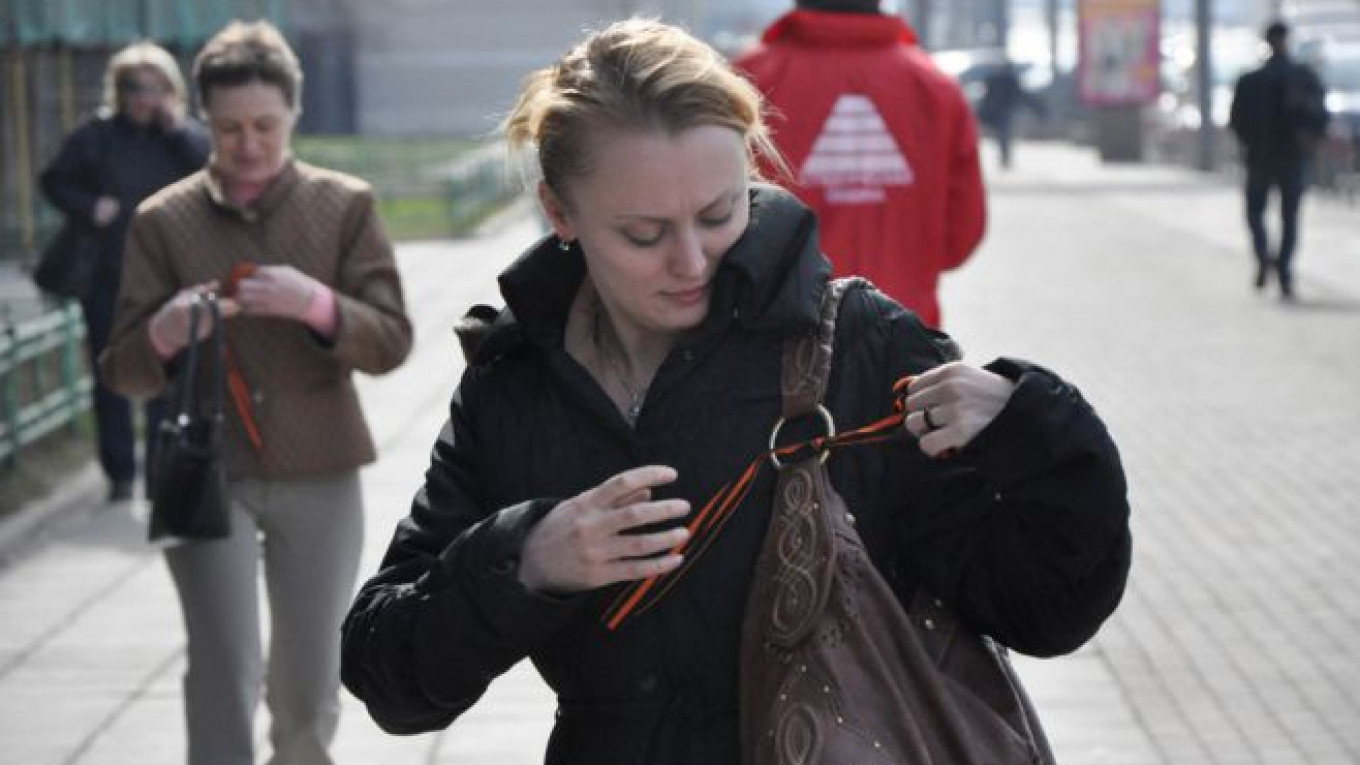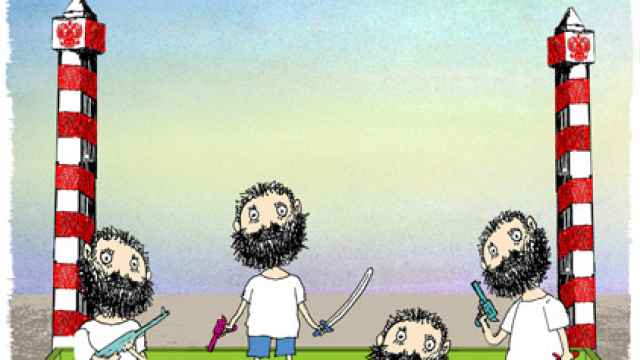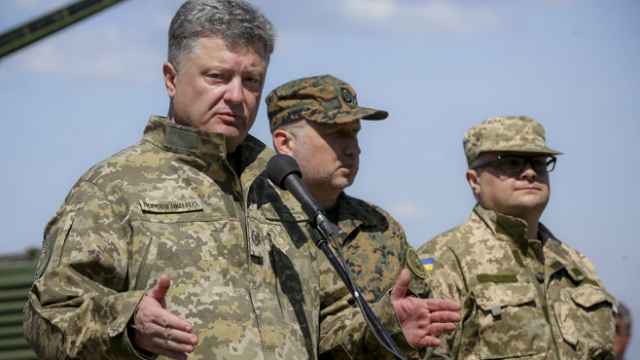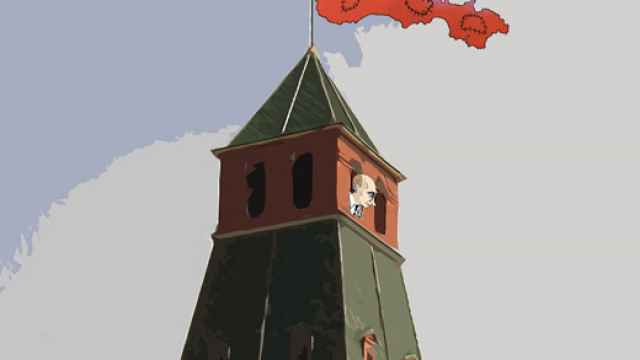Ever since prehistoric times, humans living in large groups or communities have tended to imitate each other. And no matter how hard we try to distance ourselves from current fashions and trends, much of what we do, or eat, or listen to, or watch or wear every day is the result of the fact that someone once did something that others liked and copied.
As an example, Muscovites began the custom of adding little personal touches to public spaces a few years ago, with the result that we now find stuffed animals adorning public playgrounds and even the gardens near apartment buildings.
Although this shows that people want to make the public spaces a little "homier" with cute little stuffed rabbits and bears, they are apparently too embarrassed to leave their contributions when others might "catch them in the act." However, what these good Samaritans don't consider is the weather.
After a heavy rain, that teddy bear with a silly smile on a human-like face, perhaps handed down for several generations before ending up nailed unceremoniously to a wooden playground swing, ends up looking like something out of a horror film, a sordid voodoo doll boding ill for all who draw near.
A teddy bear is not a ceramic lawn gnome that actually belongs in a flowerbed. Teddy bears were made to be cuddled and held, not nailed to a swing or wooden fence. At best, such a sight evokes pity. At worst, it sends a message to kids that cruelty is admissible. Unfortunately, that knowledge eventually comes to everyone anyway and there is no need to hurry it.
People do not nail teddy bears to swings and fences in any of the countries that Russia emulated 20 years ago, or that it emulates now. And the fact that this practice has become fashionable in today's Russia indicates a systemic breakdown in society, in the popular understanding of what is good and what is evil.
But just try explaining that to someone toting a teddy bear in one hand and a hammer and nails in the other. He or she sincerely believes they are improving the neighborhood. What's more, they know that people have done exactly the same thing in the next yard over. It's just a bizarre urban trend.
Trends, and whatever is currently in fashion, explain a lot.
Consider the young woman driving a compact Peugeot in the next lane over. She is probably two years out of college and works in an office downtown. She's got a St. George ribbon hanging from her rearview mirror and a large window sticker left over from Victory Day depicting a Soviet T-34 tank that reads, "To Berlin!"
Is this young lady really one of President Vladimir Putin's millions of mindless minions, primed by the relentless television propaganda campaign to tear foreign and domestic enemies limb from limb at a word from their authoritarian leader?
Possibly, but more likely the ribbon and the window stickers are just a fad.
Twenty years ago, it was fashionable to attend the swanky parties that were just starting to appear in Moscow and also travel to Berlin for the Love Parade.
Now it is fashionable to make a show of celebrating Victory Day.
A great many people all across Russia would have liked to watch the parade of tanks and ballistic missiles on Red Square in person, but those who couldn't displayed St. George ribbons and stuck patriotic decals on their cars.
Frankly speaking, the young lady in the Peugeot and countless others just like her couldn't care less about the missiles on Red Square. In fact, the tanks and missiles and all the talk about a victory in some horrible war in the middle of the last century carries little more than superficial significance for today's Muscovites — of either sex. They hang St. George ribbons on their rearview mirrors and put commemorative stickers on their car windows simply because that's what everyone is doing this year.
Looking at it this way, such behaviors do not seem so alarming. But it would be a mistake to ignore them completely. After all, a serious problem remains: somebody is deciding that the St. George ribbon and the words "To Berlin" should be all the rage right now.
Obviously, the young men and women driving new cars and sitting in air-conditioned offices have better things to do than dream up such patriotic campaigns. However, highly professional spin doctors went to great pains to cultivate their interest in what is otherwise a fairly mediocre ideological "product."
Of course, these youth think they made a conscious decision to display those patriotic ribbons and window stickers, even without going into details about television news reports claiming that the West has it in for Russia. Why should they worry? They have already bought their tickets to vacation not in Crimea, but in Barcelona.
However, they are actually dancing to the tune of the Pied Piper who, in the grim tales of the Brothers Grimm, absconded with the children of Hamelin. If the Pied Piper so chooses, those youth will never vacation in Barcelona again — perhaps not even in Crimea.
It is dangerous to play the Piper's game, but today's Russian youth have already begun dancing to his tune without even realizing it.
Alarmism makes it very difficult to see things clearly. If you believe media reports concerning Dagestan, you would naturally conclude that the republic is wracked by constant warfare. But anyone flying to Makhachkala from Moscow will find a peaceful and hospitable city.
Any foreigner following current events here based solely on a Russian opposition member's blog would conjure up images of Stalinist repression or a nuclear-armed Third Reich. But if they were to fly to Moscow, they would find quite another picture.
The situation in today's Russia bears no comparison to either the Soviet Union or Germany in the late 1930s. Russia is still a remarkably free country in many ways. Want to join the separatist fighters in the Donbass? Go right ahead. Want to catch a tan in Barcelona? Who's stopping you?
Anyone sick of the constant government propaganda on state-controlled television can turn off their television and find news on the Internet instead. After all, the authorities have not yet gone so far as to stop people and punch them in the face for not hanging a St. George ribbon on their rearview mirror.
On the other hand, if the authorities do single you out for punishment, it matters little if others are also in the same boat. If the airport authorities confiscate your passport as you are about to board a plane from Russia to Germany, and, as happened last week to Cossack activist Vladimir Melikhov, return it to you an hour later with a page cut out, you don't take any comfort from knowing that the same thing has happened to others.
Political prisoners are relatively few in today's Russia. But the authorities have destroyed the lives of each. For them and their families, the fact that such victims number in the dozens and not in the millions offers scant consolation.
But who knows how this story will end? Today, well-meaning citizens nail stuffed animal bunnies to playground swings. Tomorrow, they might find a more constructive outlet for their desire to see Russia improve.
Ivan Sukhov is a journalist who has covered conflicts in Russia and the CIS for the past 15 years.
A Message from The Moscow Times:
Dear readers,
We are facing unprecedented challenges. Russia's Prosecutor General's Office has designated The Moscow Times as an "undesirable" organization, criminalizing our work and putting our staff at risk of prosecution. This follows our earlier unjust labeling as a "foreign agent."
These actions are direct attempts to silence independent journalism in Russia. The authorities claim our work "discredits the decisions of the Russian leadership." We see things differently: we strive to provide accurate, unbiased reporting on Russia.
We, the journalists of The Moscow Times, refuse to be silenced. But to continue our work, we need your help.
Your support, no matter how small, makes a world of difference. If you can, please support us monthly starting from just $2. It's quick to set up, and every contribution makes a significant impact.
By supporting The Moscow Times, you're defending open, independent journalism in the face of repression. Thank you for standing with us.
Remind me later.






